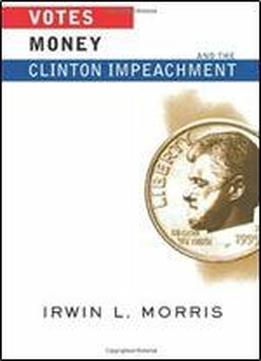
Votes, Money, And The Clinton Impeachment (transforming American Politics)
by Irwin Morris /
2001 / English / PDF
26.8 MB Download
The politics of impeachment have been explained in either partisan or ethical terms. Morris argues that most legislators-and nearly all Democrats-simply voted their constituents' preferences on the Clinton impeachment and conviction. Those who voted against their constituencies did so for a variety of reasons, but all expected to be able to raise sufficient campaign funds to overcome their constituents' displeasure. The ability of incumbent Republicans to raise the huge campaign war chests offset their constituents' frustration with the Clinton impeachment and allowed them to maintain their majority party status in the House. Republican Senators were not as successful. Morris emphasizes the ways in which our current system of campaign finance both enabled the Republican leadership to impeach Clinton and allowed the Republicans to retain the House majority, and then he concludes with a discussion of the role of money in modern American politicsThe politics of impeachment have been explained in either partisan or ethical terms. Morris argues that most legislators-and nearly all Democrats-simply voted their constituents' preferences on the Clinton impeachment and conviction. Those who voted against their constituencies did so for a variety of reasons, but all expected to be able to raise sufficient campaign funds to overcome their constituents' displeasure. The ability of incumbent Republicans to raise the huge campaign war chests offset their constituents' frustration with the Clinton impeachment and allowed them to maintain their majority party status in the House. Republican Senators were not as successful. Morris emphasizes the ways in which our current system of campaign finance both enabled the Republican leadership to impeach Clinton and allowed the Republicans to retain the House majority, and then he concludes with a discussion of the role of money in modern American politics.











